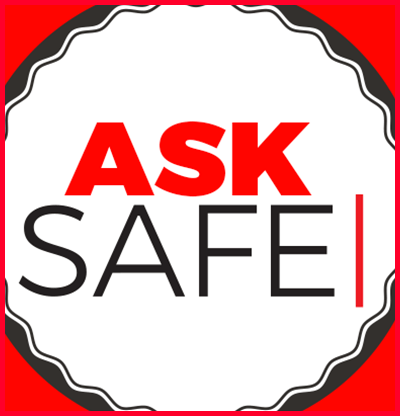Ask SAFE: What do I do if I’m being stalked?
Written by SAFE
With National Stalking Awareness Month underway, we’re answering questions about stalking. But first, a little about the topic:
According to the U.S. Department of Justice, stalking is “a pattern of repeated and unwanted attention, harassment, contact, or any other course of conduct directed at a specific person that would cause a reasonable person to feel fear.”
Stalking behavior can include:
- Threats against someone or their friends and family
- Persistent unwanted communication through technology (email, text, social media)
- Repeated physical or visual closeness (waiting for someone, following them, watching them from a distance, using GPS or other software to monitor someone without their knowledge or consent)
I went on a few dates with someone, but I broke it off because I didn’t feel like we clicked. Last week I saw them driving around my neighborhood and this morning I found a strange note in my mailbox. How can I keep myself safe and prevent this from escalating further?
Start by letting your family, roommates, friends, and co-workers know of the situation, and ask them to be on the lookout for this person. You are right to be concerned. The behavior that you are describing could fall under the definition of stalking.
Do not engage any further with this person – do not respond to any communication electronically or otherwise. Record the date and time of these incidents in a journal, or use a note taking app on your phone. Keep the notes and any other correspondence they may send.
If the attention continues or escalates, you may want to report it to law enforcement. Seek out support for yourself, as this behavior can be confusing and frightening – the SAFEline can help you process your feelings, create a safety plan and offer additional emotional support and connection to resources if needed. You can contact the free, 24-hour SAFEline by phone at 512.267.SAFE (7233), by text at 737.888.7233, or online at safeaustin.org/chat.
My ex-boyfriend texts me all the time and is constantly commenting on my social media posts asking me to take him back. If I ask him to stop, he tells me how lost he would be without me, occasionally telling me that he would kill himself without me. Is there anything I can do?
You have every right to end a relationship and move forward with your life. You are never responsible for another person’s mental health or behavior, even if they are or were a romantic partner.
Consider expressing one final time that you wish him well, and that it is best for both of you to end all communication and move forward. If you are concerned with his mental health, you can encourage him to seek counseling.
No matter his response, do not respond to him again. Avoid any contact, whether via social media, texting, email, or in person. If he continues to reach out to you on social media or via text, screenshot the exchanges and keep a log including the date and time of each communication attempt.
Unfortunately, ending a relationship can escalate threats of self-harm and stalking behaviors that you are describing. The SAFEline is available for counseling support and to help create a safety plan that’s right for you. If the stalking continues or escalates (either electronically or in person), you may want to report it to law enforcement.
You can also request a protective order if you are concerned about your safety.
My friend just received an email from another student in our college class, detailing what she was wearing that day, where she had gone, who she had seen, and what she had been reading. We are super creeped out, but it’s not like they have committed a crime. What can we do?
While it may feel like they haven’t committed a crime, their behavior is not OK. Repeatedly following someone or watching them from a distance and monitoring their whereabouts could be considered stalking and harassment.
While individual stalking behaviors are not necessarily illegal, these acts are unwanted and there can be an implied threat. Moreover, the threat a stalker poses can escalate over time.
About 12 percent of college students are impacted by stalking. You deserve to feel safe and comfortable in your learning environment. Any unwanted attention that impacts your ability to learn and thrive should be taken very seriously.
You can file a stalking report with local law enforcement or campus police. Save the email or screenshot any messages received through social media. If the situation continues and you are concerned about your safety, you can contact the counseling center at your college or the SAFEline to receive support and create a safety plan. You can also file for a protective order.
More facts about stalking
- Women are more likely to experience stalking than men.
- The majority of victims know the offender.
- Most offenders are male.
- 2/3 of stalkers pursue their victim at least once per week.
- 78% of stalkers use more than one means of approach.
- Weapons are used to harm or threaten victims in about 20% of cases.
- 3/4 of women who experienced stalking-related behaviors experienced other forms of victimization (sexual, physical, or both).